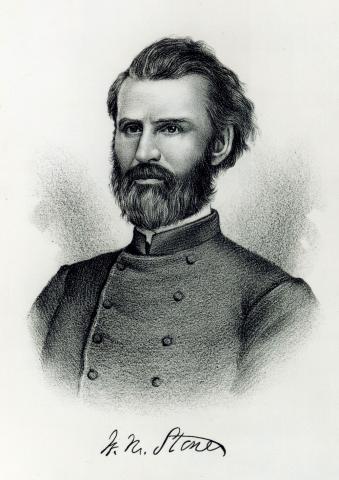
Description
This portrait is of William M. Stone, who would serve as Iowa's Republican governor during the end of the Civil War. Before being elected, he was a decorated officer in the Union Army, and at one point, had been a prisoner of war during the Civil War. Stone also was a lawyer and held several governmental offices during his lifetime. During the Republican convention of 1865, a prominent issue was African-American suffrage. The Republican Party largely supported political equality for African Americans, though most believed that social equality was not to be obtained. In 1866, the Iowa Legislature began amending the state’s constitution to remove the word "white" from the suffrage article, as well as articles about census taking, districting of representatives to the legislature and the state militia. In 1868, the men of Iowa 21 years of age or older — who were the only ones with the right to vote at that time — voted for African-American suffrage with 56.5 percent of the vote.
Source-Dependent Questions
- William Stone served in the Union Army during the Civil War, and at one point was a prisoner of war. How could William Stone's past have shaped his views on African-American suffrage?
- At the time of William Stone's election as governor of Iowa, the Iowa Republican Party believed that African Americans should have political equity but not social equity. Refer to Alexander Clark's speech at the "Colored Convention." Did Alexander Clark's request align with the Iowa Republican Party's beliefs? Why do you think that was necessary?
- In 1868, during Governor Stone's term in office, the Iowa Legislature amended the state's constitution to remove the word "white" from the suffrage article, which if passed would allow all men over 21 years old the right to vote. Over 56.5 percent of Iowa voters approved the amendment to Iowa's constitution. How did this change the life for people, both white and African American, living in Iowa?